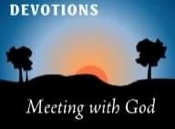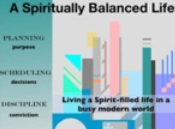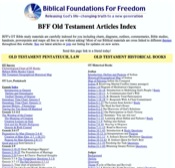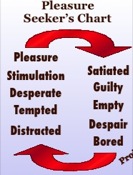
Psalm 89: A Short Study
The Bible Teaching Commentary
Learning how to Study the Old Testament Psalms
Paul J. Bucknell
__________________________________________________________
Reading the OT | Studying Psalms | Psalm 89 Short | Psalm 89 Long study
__________________________________________________________
This short study of Psalm 89, part 3 of 4 of Learning How to Study the Old Testament Psalms, helps a person learn how to profitably study a Psalm when one only has a shorter amount of time by providing certain skills and advice. The 'long' study of Psalm 89 is also available if you have more time.
Psalm 89 A Short Study
All Old Testament scripture is to be read with the anticipation of meeting God and having Him 'speak' to us. God typically speaks to His children in quiet thoughts through the Holy Spirit not in audible voices.
I would first notice that the Psalm is so long that I can be so preoccupied with the task of reading the Psalm that I will miss what God has.
Let me provide some pointers to help us in a short study of a long Psalm (though they are applicable in reading short psalms too). We will be looking at Psalm 89 as an example. I first pray and humbly and yet in anticipation expect the Lord to reveal His Word to me.
✴ Scan the passage
When I turn to Psalm 89, I will first notice of its extreme length. In this case I probably will accept the fact that I will not be able to study the whole passage. I will at least quickly read the first and second paragraphs to detect what kind of Psalm it is. It seems to be a song of praise. I ready my heart to join the psalmist in his praise.
At the same time I am asking some questions to find clues about this passage. I have done this so long that it just happens automatically. You might discover this true with you too. What kind of questions?
-
Who is he writing to?
-
When is he writing it?
-
Why is he writing it?
-
What special circumstances surround this psalm?
Depending on the psalm, I might ask other questions too. If I am going to read the Psalms with profit, then I must read with understanding! Quickly read Psalm 89:1-10 and write down your own answers and then compare it with my quick observations below.
In this case I find Ethan the Ezrahite has written it. He is chiefly addressing God (note verse 8 - "Thy faithfulness"). Not sure when he is writing it (the first ten verses do not give a clue except the heading which I assume we did not have time to look up). He is writing it to give praise to God and record God's faithfulness.
✴ Read the Heading
In many cases a quick scan would include the first verse where the header is. Since it is always brief, it is written to introduce and help us catch the setting of the Psalm. Your general background of the Old Testament will shape how much you can quickly pick up.
"A Maskil of Ethan the Ezrahite..." (Psalms 89:1)
The first words, 'A Maskil of Ethan the Ezrahite' are set apart as a header for this Psalm. We should see if there are any clues given regarding the context of the psalm. Maskil is a transliterated word (sounds just like the Hebrew but has no meaning in our language) meaning poem or poem of contemplation.
They should have translated it to be 'a poem' rather than a maskil which no one understands. The phrase 'Ethan the Ezrahite' does not provide us any immediate clues except to state this one man has written this Psalm.
If we had more time, (think 'long') we could search for 'Ezrahite' in a Bible search program. We would discover that it is used in two other places than here. One verse gives lots of insights into the background of this psalm.
"And Solomon's wisdom surpassed the wisdom of all the sons of the east and all the wisdom of Egypt. For he was wiser than all men, than Ethan the Ezrahite, Heman, Calcol and Darda, the sons of Mahol; and his fame was known in all the surrounding nations." (1 Kings 4:30-31).
We are not sure whether Ethan was an Israelite or not (he probably was because of him writing a psalm) but surely he was one of the sages of Solomon's time. This helps us date this psalm to the time of Solomon, perhaps after he died (we will discuss this later).
But we are doing the short version and assume we know nothing about the background. We can proceed, but problems can occur.
✴ Meeting Problems
When we quickly scan over Psalm 89, we will at once be invited to join the psalmist (i.e. Ethan) in his praise to the Lord. We must start reading more closely. We perhaps will read these first ten verses two or three times. All along, we are asking ourselves is this something I agree too? (In my case) Why is the psalmist so much more excited than I?
We will probably note the many "I" statements in the beginning - seven of them in 89:1-4. The Psalmist starts by describing his own response to the Lord's lovingkindness. Read Psalm 89:1-4. Who is speaking?
It still is the psalmist speaking, we might get confused (I did). Verses 3-4 seem to transfer the subject (who is doing the action) to the Lord. It seems the Lord is speaking, "I have made a covenant with My chosen."
Psalms are all poetically written and one needs to constantly be aware of what scene one is in, who is speaking, the addressee and in the Psalms whether there is a type or prophetic statement being said.
Because we are doing a short study we do not want problems become a stumbling block to learning what God wants us to teach. Some issues are not readily resolved. We will need to discern before the Lord whether we should just skip this problem of who is writing verse 3 and 4 and go on or to take a quick look at the problem.
If you are not inclined to tackling such problems, just skip over it. (In the end the meaning will be the same. The words obviously do not refer to the psalmist but to the Lord).
If you want to see what the problem is, take the time to write the meaning of these verses in your own words. This usually points out the confusing parts. This does not mean one will understand the problem but at least one will identify the problem.
For example, in verse 3, we are asking whether "I" in verse 3 refers to the psalmist or to the Lord. We can see in verse 2 that it makes sense that it is the psalmist still speaking but in 89:3 "I have made a covenant" we realize that it is definitely not the psalmist personally saying this.
Once we affirm that the LORD is speaking in verse 3, we have to think who is speaking in verse 5 and 6. We would find that the psalmist is again speaking of the LORD. So we will probably go back to the verse 3 and recognize that the psalmist did say these verses but probably just quoted that line. He only did not preface the line, "And the Lord said, "....." (Poetry sometimes demands smoothness over clarity).
Even the commentators go through the same back and forth process (if they care to comment on the specific issue). Usually it is not a black and white issue. We guess and test our guess. And if it is not consistently working out, then we begin to look for an alternative suggestion or explanation.
The most important thing to remember is to keep asking if this search for knowledge is worth it. If one is not trained in Bible study, then one probably will not even detect the problem. But if one does, feel free to keep reading on. Don't get bound to solving some intellectual battle. That is for longer studies unless it readily is solved. I often note the problem, say a quick prayer seeking to learn more and move on. This is purposeful reading.
✴ Making a conscious decision
If we are only conducting a short devotional study, then we need to make another decision. Are we going to read through the whole Psalm or are we going to read just a short part of the longer Psalm. Be aware of the decision. Don't put the decision off.
Both options are fine, but we must keep clear our goal and make the necessary adjustments in our mind. We are looking to be built up from some one or two verses or the theme of the whole reading (as 2 Timothy 3:15-16 says).
If one chooses to read the whole passage, then one will read quicker, or perhaps even just scan/read the longer passage. If one is reading a shorter passage, then one will read slower. We basically put our trust in God to speak to us through this passage.
If we choose a longer passage, we are trusting our Lord to speak to us through that longer passage. Our anticipation that God wants to speak to us and that we desperately need to learn from Him is the background of our belief as we read His Word.
We must pay close attention to what we are reading, whether a longer or shorter passage. Depending on how long the passage and your available time, read through the passage one time trying to be sensitive to whether a certain verse or word pops out at you.
If not, then ask Him to speak to you and read the Psalm again until He does speak to you. If you discover something intriguing or helpful in a certain verse, it is appropriate to stop and just meditate on that one or two verses (or words). Let me provide an example.
✴ Devotional Reading of Scripture
I read Psalm 89 and the verses 15 and 16 and their poignant message jumped out at me. I immediately slowed down to a near stop and paid close attention to those verses through which God has started to speak to me.
"How blessed are the people who know the joyful sound! O LORD, they walk in the light of Thy countenance. In Thy name they rejoice all the day, And by Thy righteousness they are exalted" (Psalms 89:15, 16).
In this cases the verses reminded me of Philippians 4:4, "Rejoice in the Lord always; again I will say, rejoice!" (Philippians 4:4). The psalmist here, however, fills it in. The apostle might have penned those words from reflection on these verses. And then I would meditate on the different aspects of walking in joy. Since I am a preacher, outlines pop into my mind,
The Privilege of the believer (Psalm 89:15)
- How blessed to walk in ...
-
The Joy of the believer (Psalm 89:16a)
- In Thy Name they rejoice all the day
-
The Source of the joy (Psalm 89:16b)
- By Thy righteousness - that of Christ
I tried to understand what aspect particularly impressed me. I might ask the Lord, "What is it that you are trying to say to me here?" In this case it was "rejoice all the day." And from there I would evaluate my life and see what joy is in my life.
-
Am I joyous throughout this day?
-
Is something threatening my joy today?
-
Am I joyous everyday? And then I follow up with appropriate prayers.
If I have a family, I might pray that God's joy would fill all of them through the day.
Remember I do not need to have an outline to meditate on this passage in this way. I only need to find through what passage He is speaking and link it to what attitude, thoughts or actions I should have on account of it.
✴ Take a Deeper Look
Shorter passages allow deeper reflection. Read through 89:5-10 and try to feel the emotion and think the thoughts of the psalmist. Be aware of your own thoughts and feelings. Are they the same or contrary? Why? Is it easy or hard to identify with him?
"And the heavens will praise Thy wonders, O LORD; Thy faithfulness also in the assembly of the holy ones. For who in the skies is comparable to the LORD? Who among the sons of the mighty is like the LORD, A God greatly feared in the council of the holy ones, And awesome above all those who are around Him? O LORD God of hosts, who is like Thee, O mighty LORD? Thy faithfulness also surrounds Thee. Thou dost rule the swelling of the sea; When its waves rise, Thou dost still them. Thou Thyself didst crush Rahab like one who is slain; Thou didst scatter Thine enemies with Thy mighty arm. The heavens are Thine, the earth also is Thine; The world and all it contains, Thou hast founded them." (Psalms 89:5-11).
What is the key theme here? One could read through the whole Psalm or just pick out a section, usually a portion that is of the same style. In this case we find the psalmist is overwhelmed by God's greatness. Up to this point, we do not know if he met up with some special experience or not.
We should be thinking, "How is it that he is thinking this way?" We should be asking, "Have I ever praised the Lord before like this?" "When?" "Why?" "What might keep me from being so enamored with declaring God's greatness?" In response to such a psalm I might just start singing a praise song, perhaps made from these words or a common one.
On the one hand we are thinking about the psalmist and on the other we are quietly but actively contemplating what God is trying to have me do or how He wants me to respond to Him. There might be some particular word or phrase that interrupts this general approach.
For example, the phrase "Thy faithfulness" from verse 1, 5, and 8 might stand out. In this case, just focus on these thoughts and see how the Holy Spirit might lead your thoughts about his faithfulness.
If you are like me, these verses might seem rather dull and do not mean a lot to us. We have read them before, and they don't seem to impress us much. If the Psalm continues, just continue on reading. But if the portion you were reading for today ends, further seek the Lord on what particular thought would help you through the day.
In this case, you might simply admit that you have never really learned how to praise Him. If this is so, ask Him, Why?" Seek Him to reach deeper into your life so that you can better appreciate the Lord and His work. In other words, do not give up! Satan would have you give up.
Persistence in seeking Him is the key. Sometimes He quickly speaks and at other times, He is testing you whether you really think you need His Word. I share a bit on how God instructed me to meditate on His Word here.
Next => Discover from Psalm 89 how one can find the main purpose for writing a certain psalm.This can be done when one has more time to study.






